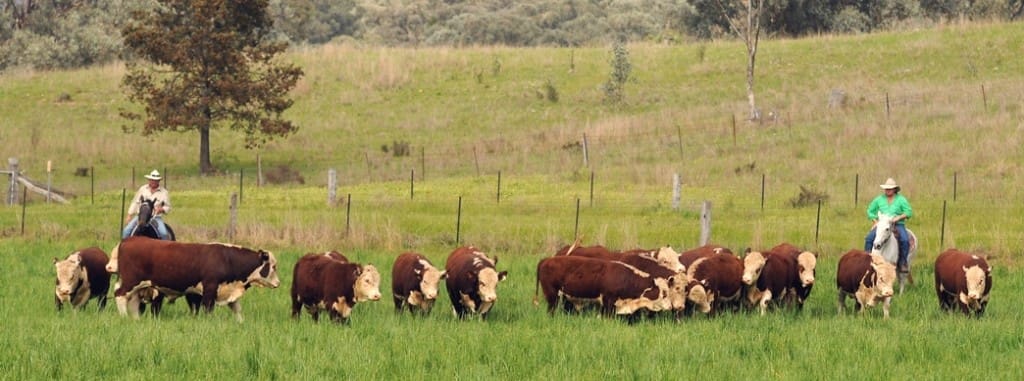Latest listings on Jobs Central recruitment page:
- Chief Financial Officer and Company Secretary (Intergrain, via Rimfire)
- Property Manager – Scone NSW (Emery HR client)
- Stockperson – Roebuck Export Depot, WA (Nyamba Buru Yawuru)
- NRM Project Officer – Mt Isa Qld (Southern Gulf NRM)
- Feedlot Manager – Pilbara and Kimberley regions (Agricultural Appointments client)
- Feed Mill Hand – Wallumbilla Qld (Yarrawonga Cattle Co)
- Farm Manager, WA College of Agriculture, Harvey (WACOA)
- Farm Mechanic – Darling Downs Qld
- Farm Manager – South West Vic (Lucas Group client)
- Livestock Marketing Coordinator, Orange, NSW (Paraway Pastoral Co)
- Feedlot Manager – Pittsworth Qld (AusAg Rural client)
- General Manager Industry, Government & Corporate Affairs (AMPC)
Click here to access these and other top job opportunities on AgJobs Central

IN today’s competitive ag sector job market, technical skills and experience are no longer the only indicators of a successful hire.
More and more, organisations are recognising the importance of cultural fit – how well a candidate’s values, behaviours and working style align with the company’s ethos.
Hiring for culture not only improves team cohesion and employee satisfaction, but also contributes to stronger performance and long-term retention.
Se out below are some practical strategies and key considerations for assessing cultural fit throughout the recruitment process, helping employers make well-rounded and effective hiring decisions.
Define your culture – clearly
Start by articulating what your company culture is. Consider your organisation’s core values, leadership style, communication norms, and work environment. Without a clear benchmark, assessing fit becomes subjective and inconsistent.
Ask behavioural questions
Dig deeper during interviews with behavioural and situational questions that reveal how candidates have handled real-world scenarios. For example:
“Tell me about a time you had to work with a team that had different opinions. How did you manage that?”
Look for responses that reflect alignment with your team’s collaboration style, decision-making process, and values.
Involve your team
Introducing candidates to future colleagues in informal settings (like a casual coffee chat or team meeting) can offer a window into how well they might mesh. Team members often pick up on subtle cues that traditional interviews might miss.
Watch for authenticity
Cultural fit is not about hiring people who all think the same. It is about shared values and respect for the way your business operates. Focus on authenticity over surface-level likability—ensure candidates genuinely resonate with your mission and way of working.
Consider culture add, not just culture fit
Finally, shift the mindset from “Do they fit in?” to “What do they bring?” Candidates who challenge thinking or bring diverse perspectives can elevate your culture, not just mirror it.
Hiring for cultural alignment does not mean hiring clones—it means bringing in people who will thrive in your environment, contribute positively, and stay the course. In today’s competitive talent market, getting this right is more important than ever.
 Source: Agricultural Appointments
Source: Agricultural Appointments

HAVE YOUR SAY